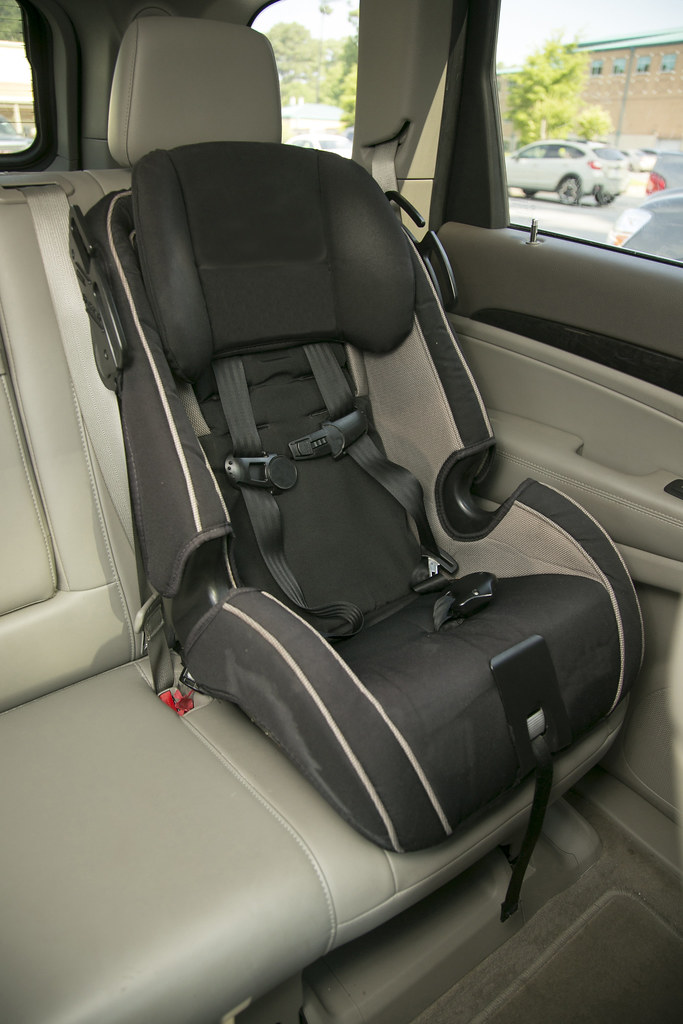Look before you lock: Children and heatstroke
By Lisa Lakey
U of A System Division of Agriculture
June 28, 2016
Fast facts:
- Car interiors can heat up to 120 degrees in less than 20 minutes
- Younger children more vulnerable to heat stroke
LITTLE ROCK -- Every year in the U.S., an average of 37 children die after suffering heat strokes from being left in hot cars, according to KidsAndCars.org, equal to one child every nine days.
“We like to think this won’t happen to us,” Brittney Schrick, Ph.D., extension family life specialist for the University of Arkansas System Division of Agriculture, said. “We like to think that this only happens to terrible parents. But most of the hot car deaths that occur each year are of children who were forgotten in the car, or who got in without their parents’ or caregivers’ knowledge and got trapped. All it takes is for you to be out of your routine. This is especially dangerous with children who are in rear-facing car seats. If you don’t see them in the rearview mirror as you get out, you may not think to check.”
Schrick said scenarios other than forgetting the child is in the car can contribute to these accidents. A young child might sneak out to play in a car, accidentally locking themselves inside, or often parents will step out of the car briefly because they do not want to wake a sleeping infant. Both situations can be potentially devastating when young children are involved. Schrick said it takes less than 20 minutes for a car to heat up to more than 120 degrees. On a hot summer day, it takes even less time.
“What happens to a child who is left in a hot vehicle is that they sweat and overheat, just like if an adult was in a hot place,” she said. “As their body temperature rises, their systems can’t regulate their temperature anymore, and they will feel dizzy, sluggish, disoriented and may have seizures. They will stop sweating and eventually lose consciousness. When they reach 107 degrees Fahrenheit, their bodies start to shut down, and they will have permanent damage or die very quickly. All of this can happen more quickly than we think. It doesn’t take hours, especially for babies.”
The younger the child, the faster heatstroke can occur, anywhere from three to five times faster than an adult. Schrick said their small bodies are not as good as regulating their body temperature, and a young infant could experience heat stroke after a very brief time in a hot car.
But despite the high number of car-related heat deaths each year that peak during summer months, Schrick said this devastating statistic is preventable. Her advice? “Look before you lock!”
“If you care for young children, make a habit of always checking the backseat,” she said. “Never leave a child in the car unattended. You may think you’re only going for a second, and that leaving the windows cracked or open will be enough, but for all intents and purposes, leaving a child in a car is like putting them in an oven. If you don’t want to wake your sleeping child to go into the store, go later. It’s always better to be safe than sorry. If you see a child unattended in a hot car, call 911 immediately.”
Schrick offers some tips for backseat safety during the summer heat:
- Leave an item you would miss (such as a purse, phone or shoe) in the backseat to ensure you will check.
- Have your childcare provider call you if your child does not show up when they are expected to.
- Install a mirror that allows you to see a child in a rear-facing car seat.
- If you are out of your routine put in extra precautions such as setting an alarm on your phone to alert you when the child should be dropped off at daycare.
For more information about heat stroke or other heat related illnesses, contact your county extension office or visit www.uaex.uada.edu.
Pursuant to 7 CFR § 15.3, the University of Arkansas System Division of Agriculture offers all its Extension and Research programs and services (including employment) without regard to race, color, sex, national origin, religion, age, disability, marital or veteran status, genetic information, sexual preference, pregnancy or any other legally protected status, and is an equal opportunity institution.
# # #
Media Contact: Mary Hightower
Dir. of Communication Services
U of A Division of Agriculture
Cooperative Extension Service
(501) 671-2126
mhightower@uada.edu
Related Links
